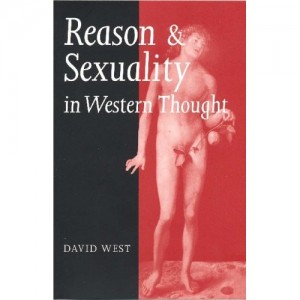Convention conduct policies – a line in the sand
Over here, Justin Vacula has a useful post about conduct policies at conventions. There is one misconception in Justin’s post, and it’s worth focusing on this for a moment. The purpose of such a policy is not to help the police enforce the criminal law. Rather, it is to enhance the product that is being sold, i.e. the experience of the convention.
It does this by deter ring behaviour that is sufficiently disruptive, abusive, or obnoxious to spoil the fun of other convention goers, and by providing a structured mechanism for complaint when that sort of behaviour nonetheless happens from time to time. In an ideal world, we’d assume that all convention goers are sufficiently adult not to engage in such conduct, but exuberance, alcohol, and in some cases just naivety or weird personalities can lead to some of this behaviour taking place. I’ve certainly observed it, and even been on the receiving end of it, during my 30-plus years of attending conventions.
ring behaviour that is sufficiently disruptive, abusive, or obnoxious to spoil the fun of other convention goers, and by providing a structured mechanism for complaint when that sort of behaviour nonetheless happens from time to time. In an ideal world, we’d assume that all convention goers are sufficiently adult not to engage in such conduct, but exuberance, alcohol, and in some cases just naivety or weird personalities can lead to some of this behaviour taking place. I’ve certainly observed it, and even been on the receiving end of it, during my 30-plus years of attending conventions.
Not all such disruptive/abusive/obnoxious behaviour is illegal. Conversely, not all behaviour that is technically illegal in the jurisdiction concerned is disruptive, abusive, or obnoxious so as to spoil the fun of other convention attendees. Illegality is not the point, though of course a convention might not be able to ignore flagrant displays of illegal behaviour, such as attendees flagrantly using illegal drugs.
So, as a convention organiser you want to say that disruptive, abusive, or obnoxious (e.g. scary, humiliating, unreasonably hostile, etc.) behaviour is not allowed, and something about how it will be dealt with and how a complaint can be made. If you spell out a policy in writing, it should give an indication of the possible consequences, e.g. a warning in cases that are not severe or fall in a grey area, rescission of convention membership with no refund in serious cases, and banning from future conventions put on by the same organisation in very serious or aggravated cases. I have nothing against conduct policies that essentially do this. They should be viewed as good-faith efforts by organisers that deserve support.
Such policies would capture, among other things, what is usually regarded as “sexual harassment”, i.e. conduct 1. with a sexual element, that is, 2. subjectively unwelcome to the recipient, and 3. objectively abusive or obnoxious in some way. However, the emphasis should be on disruptive, abusive, or obnoxious, etc., behaviour in general, not on special sensitivity about sex.
Conduct policies should not therefore attempt to restrict ordinary, reasonable behaviour, whether or not it has some kind of sexual element. They should not, for example, try to control who can have sex with whom (as was found in some proposals last year), what people can talk about in their various conversations around the venue, or how people dress (within ordinary standards of decency and legality). In particular, there is no good basis for a policy that forbids sexual images or imagery, and/or sexual language. Within wide limits, we should all be free to talk about sex, or even joke about it. Book stalls should be free to sell books whose covers have arguably sexual or erotic images, art displays or poster shops should be free to include art with erotic content, etc.
that forbids sexual images or imagery, and/or sexual language. Within wide limits, we should all be free to talk about sex, or even joke about it. Book stalls should be free to sell books whose covers have arguably sexual or erotic images, art displays or poster shops should be free to include art with erotic content, etc.
It does seem that in every generation new rationalisations are invented to try to restrict sexual expression and openness. And in every generation, we have to fight this.
For myself, I will not be supporting any convention that I observe promulgating policies against ordinary sexual expression that is not disruptive, harassing, or otherwise abusive or obnoxious. I do realise that a lot of these policies are not being enforced literally (as I always predicted), but they are open to manipulation, in the form of selective enforcement, and they send an entirely wrong anti-sex message. I will not knowingly be a party to this.
If you’ve been defending these policies, using some kind of contrived argument, please stop. Whatever your motives may be, you are on the wrong side of this issue. I am as much against actual sexual harassment as anyone, but I draw a line in the sand with policies that have “no sexual images” or “no sexual imagery and language” clauses. You should, too.


